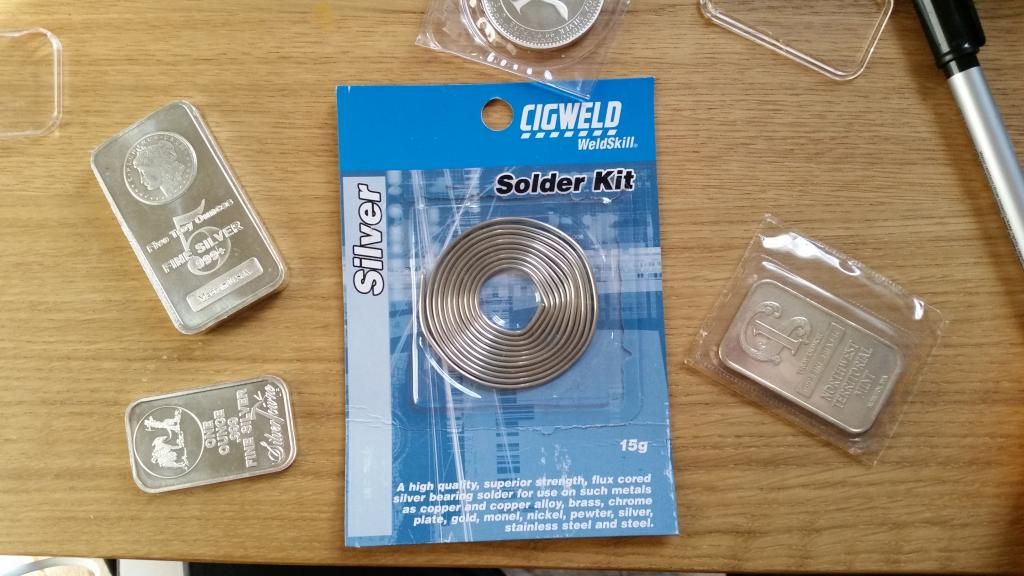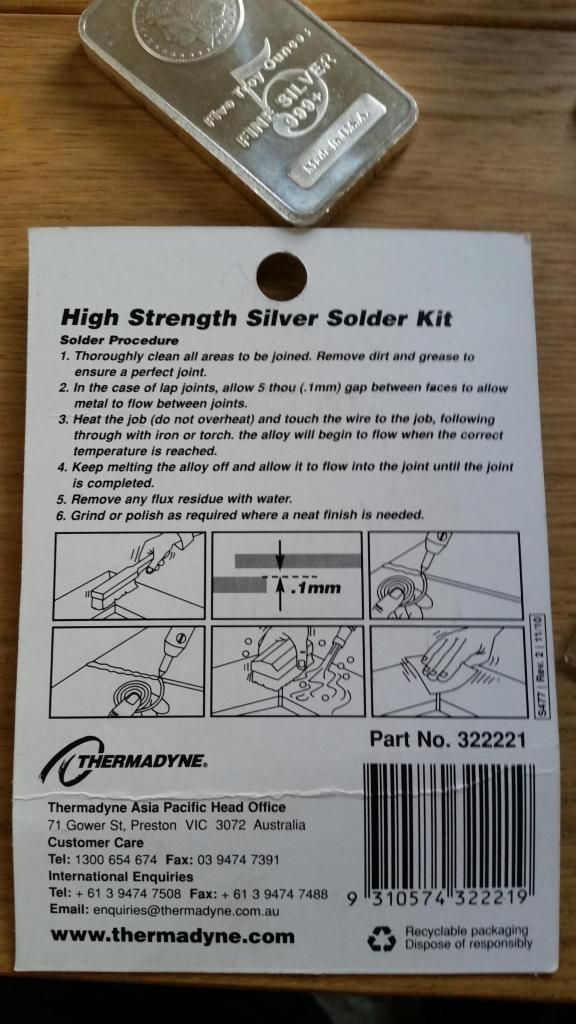RayJay
0
- Joined
- May 2, 2014
- Messages
- 344
- Points
- 0
Hi everyone,
I got a box of this Silver Solder today and want to offer it here.
It is thin enough to fit in an envelope so standard postage to the US and Canada is $3 and Australia is $1.
AUD$5 per 15 Gram Pack.
Pack in the photo is open and has been used so usually there is a few more rings of solder.
I have about 30 of these only and (probably) won't be getting any more. So get them while I have them!!


I got a box of this Silver Solder today and want to offer it here.
It is thin enough to fit in an envelope so standard postage to the US and Canada is $3 and Australia is $1.
AUD$5 per 15 Gram Pack.
Pack in the photo is open and has been used so usually there is a few more rings of solder.
I have about 30 of these only and (probably) won't be getting any more. So get them while I have them!!





